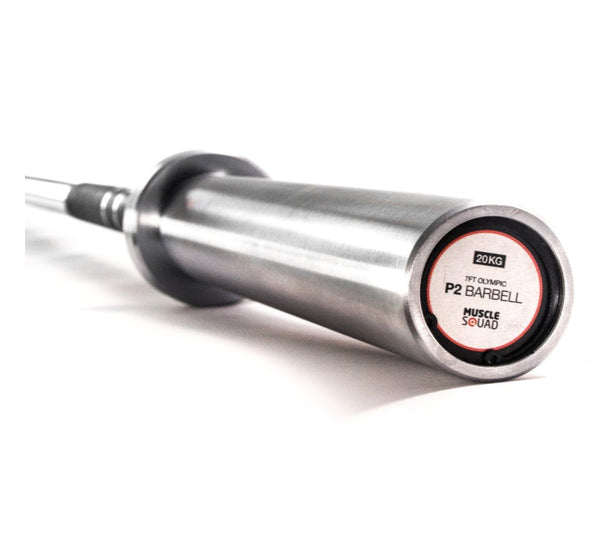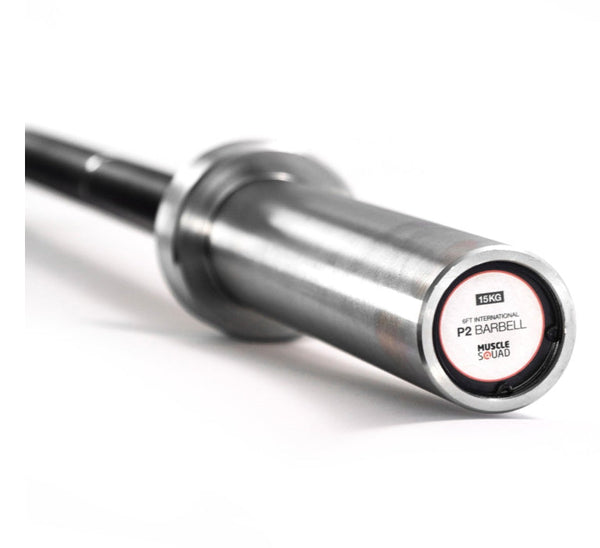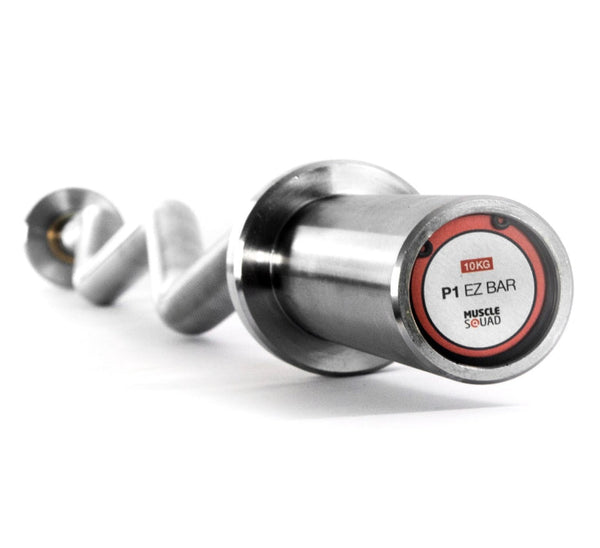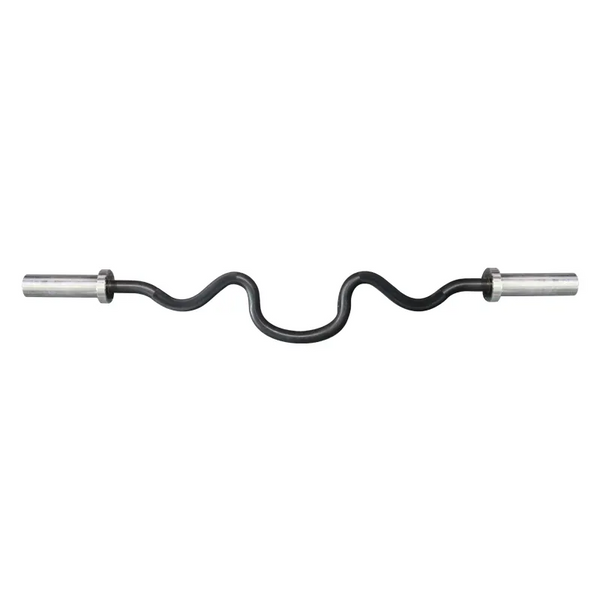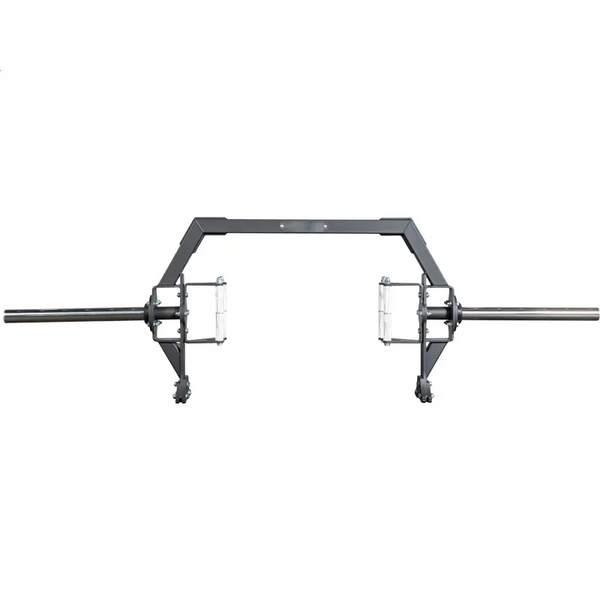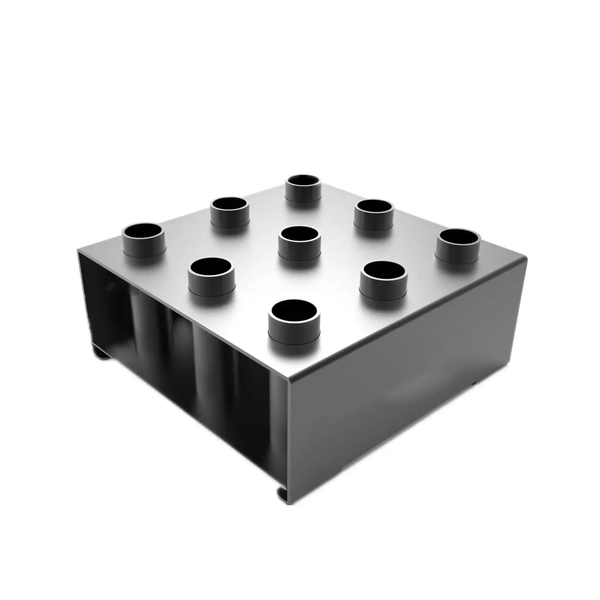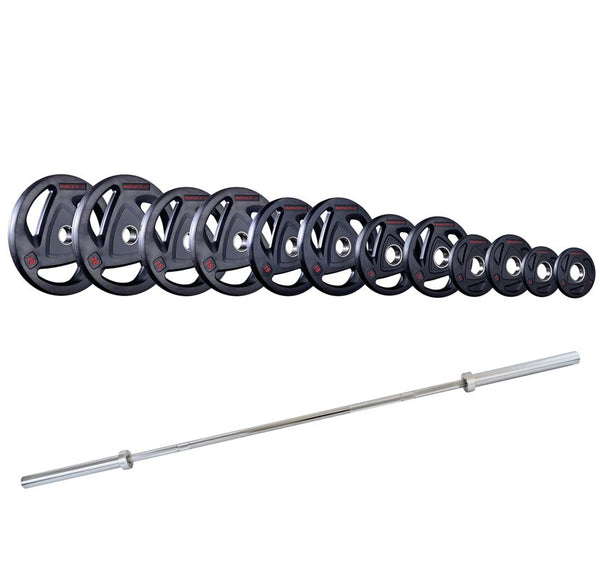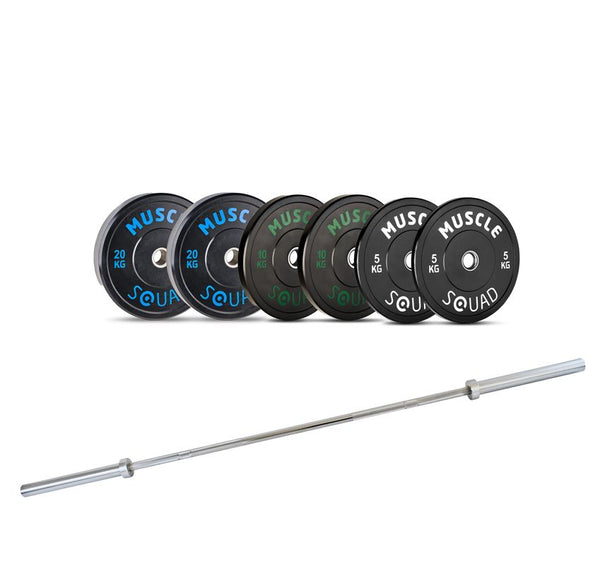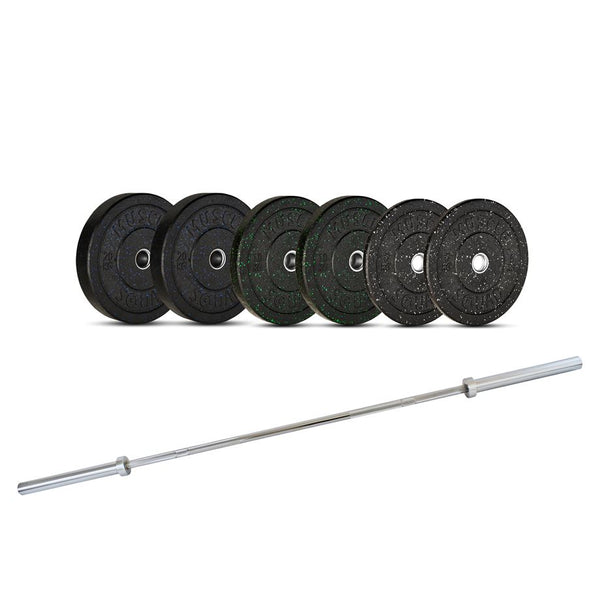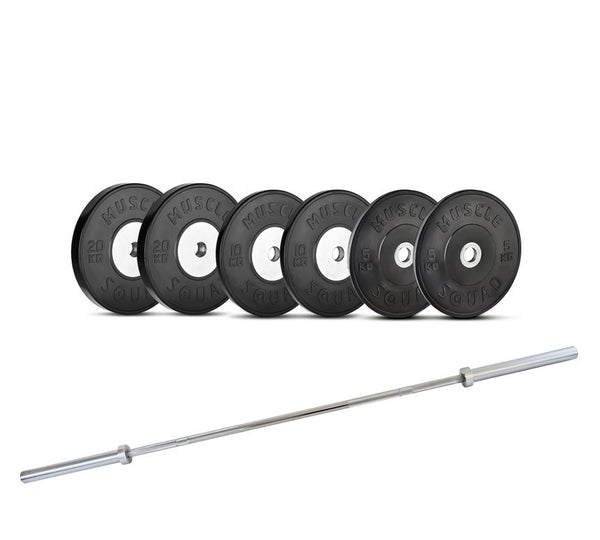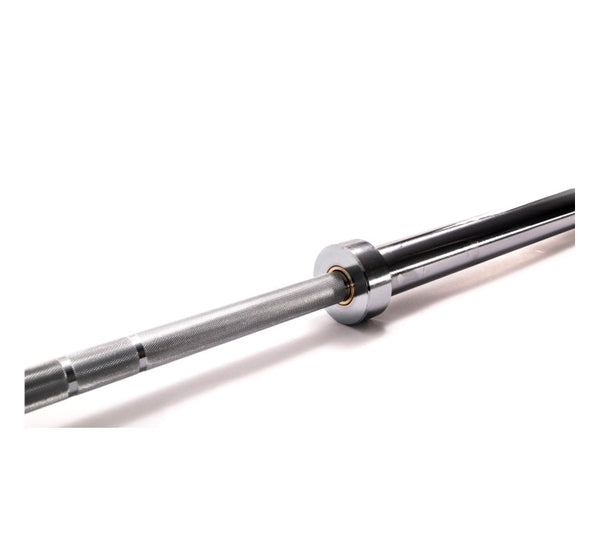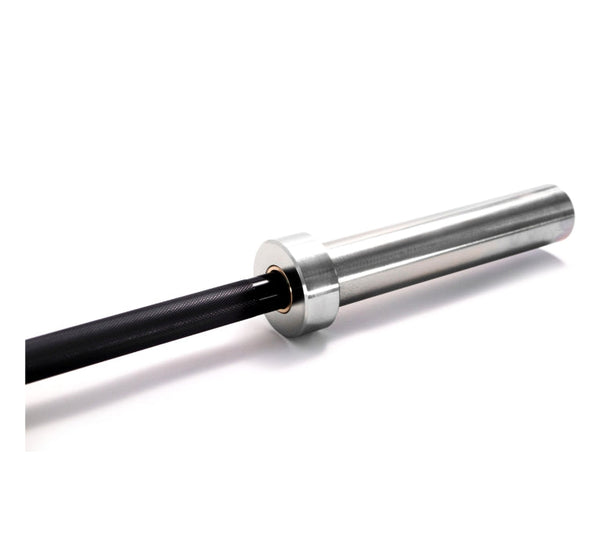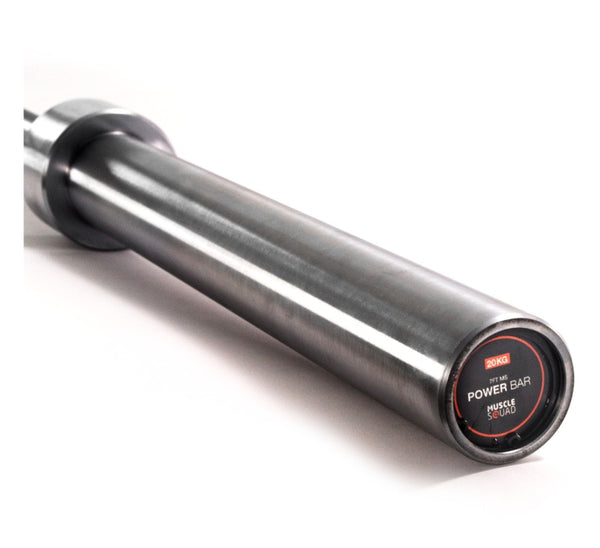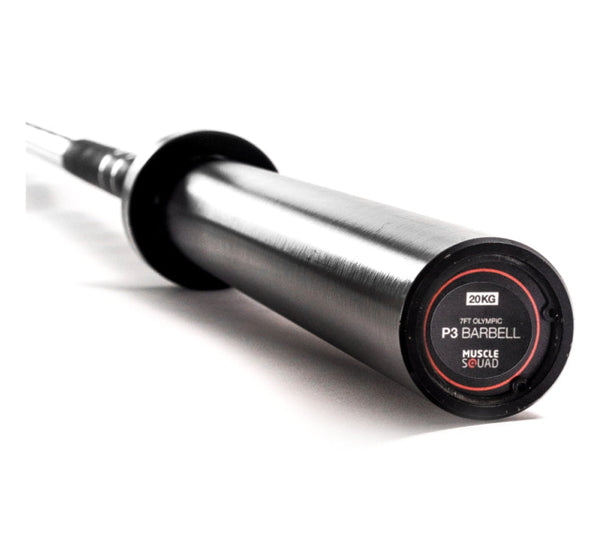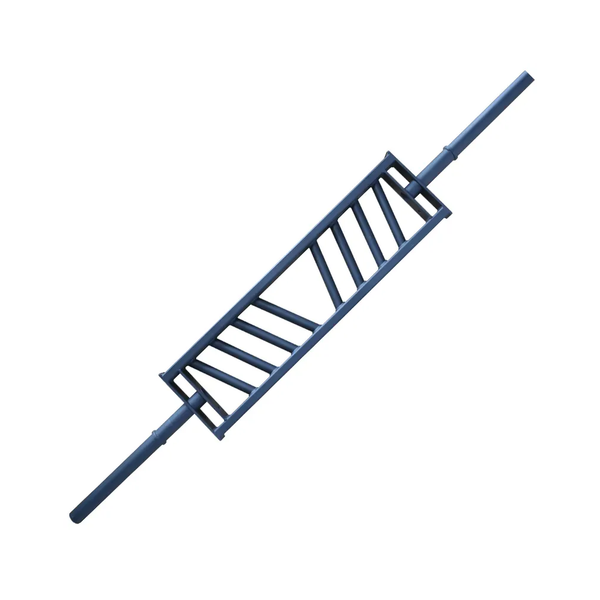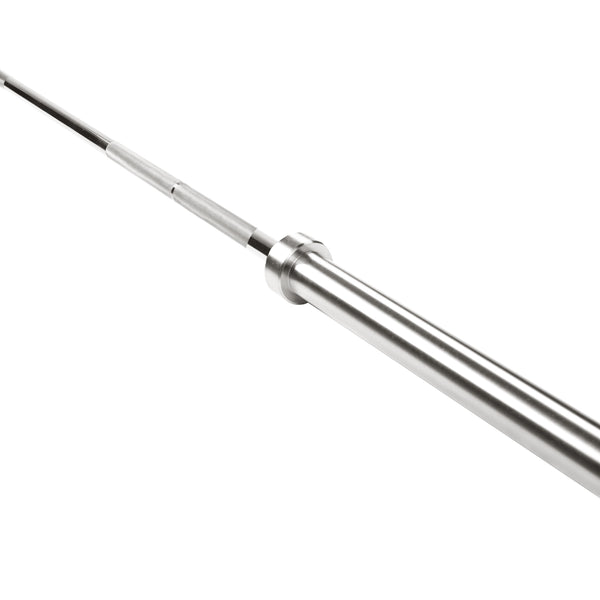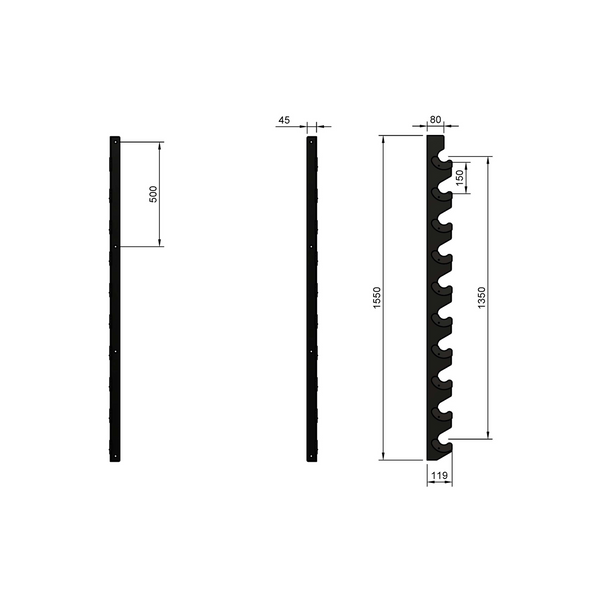Barbells, Weight Bars & Barbell Sets
A barbell is the foundation of powerlifting, Olympic weightlifting and heavy compound lifts. It’s important to purchase the right bar for your goals, so we’ve assembled our various Olympic bars and speciality bars in one place to help you decide. Choose from purchasing a barbell on its own or get all of your weight plates at the same time with one of our barbell sets.
What you should know about barbells
A barbell is an essential strength training companion and is used in amateur lifting all the way up to pro competitions. It’s an iconic piece of gym equipment that will quickly become one of your favourite accessories to train with.
A traditional men’s barbell measures 7.2 feet long and weighs 20kg. This weight is universal around the world and is a standardized value used in powerlifting and Olympic weightlifting competitions.
Coming in at 6.5 feet is the traditional women’s barbell. This weighs 15kg and has a smaller diameter than the men’s bar.
Aside from these two barbell staples, there have been several advancements in the last few decades. The EZ bar is a fan-favourite for lighting your biceps on fire while the trap bar (also known as a hex bar) is a behemoth for building functional strength throughout the body.
With a number of different bars to choose from, we’ve laid out a set of frequently asked questions to help you make a decision. If we’ve left anything out, feel free to get in touch and our team will be happy to help with your query.
FAQ
01
What size barbell should I buy?
It’s always a good idea to buy the longest barbell that fits your space. For men, this will be a 7ft barbell provided you have the room for it. For women, you can choose between a 15kg bar—which provides a lighter base to warm up on—or a 20kg bar if that’s what you’re used to. It’s all a matter of preference.
02
What different types of barbell are there?
There’s a number of different barbells that each have their own benefits.
Olympic barbells. Traditional barbells measuring in at either 6 or 7 foot. They’re best-suited for compound movements like bench press, squats, deadlifts and rows.
EZ bars. Smaller bars designed for a more comfortable wrist placement when performing bicep curls and tricep extensions. A wildly popular addition to gyms in recent years with people swearing by how effective they are for growing your arms.
Swiss bars. An adapted version of the traditional barbell with extra grip options for comfort. Typically weighing 20kg and offering several more hand positions for pressing exercises, they’re a solid addition to any gym space.
Trap / hex bars. A heavyweight powerhouse, the trap bar enables you to stand in the centre of your movement which reduces stress on your lower back. It’s commonly used by athletes and powerlifters to build functional strength through deadlifts, shrugs and farmer’s walks.
03
What exercises can I do with a barbell?
A barbell is a versatile piece of equipment, but where it really excels is in compound movements. It’s most commonly used for the big three lifts of bench press, squats and deadlifts, though it can also be used for overhead shoulder press, bent over rows, upright rows, Romanian deadlifts and a host of other movements.
04
Do you sell barbell sets?
Absolutely. Combine your barbell and weight plate purchase into one with our sets of a barbell and your choice of rubber bumper plates, crumb plates, competition core plates or tri-grip plates.
05
What weight plates should I get with my barbell?
It’s entirely up to you, but here are the main reasons why people opt for certain plates.
If your main focus is deadlifts, then you ideally want a set of weight plates that are all the same diameter, like our bumper plates. This will make it a smoother experience when lifting the bar up and placing it down.
Tri-grip plates, on the other hand, vary in size but have handle-like grips that make it possible to perform front raises, curls, shrugs and other movements with the weight plate itself. This saves you from having to invest in as many dumbbell pairs which is great when you’re on a tight budget.
06
Where should I store my barbell?
Invest in a barbell holder to neatly store your bar away. This could be wall-mounted or placed on the ground to house all of your barbells in one place.
07
How much does a standard barbell weigh?
A regular, 7ft barbell that you’ll find in standard gyms weighs 20kg (44lbs).
08
How much does a 6ft barbell weigh?
A regular, 6ft barbell weighs 15kg (33lbs).
09
How much does an EZ bar weigh?
A regular EZ bar weighs 10kg (22lbs).
10
How much does a swiss bar weigh?
Swiss bars don’t have a standardized weight like other barbells. The one we sell is 20kg (44lbs), though you’ll find them ranging anywhere from 12kg - 32kg at other suppliers.
11
How much does a trap bar weigh?
Also known as a hex bar, this heavy duty barbell weighs 32kg (70.5lbs) if purchased through us, though other suppliers may differ.
12
Do you offer free delivery?
Yes, all orders over £250 qualify for free delivery. Please note that orders to Northern Ireland and certain areas of Scotland may incur additional delivery charges.
13
How do I care for my barbell after it’s arrived?
Store your barbell in an insulated room and avoid exposing it to moisture. If it starts to rust at any point, wipe it down with a small amount of WD-40 oil.
14
What’s the warranty on your barbells?
All of our barbells and weight bars come with one year of warranty.

